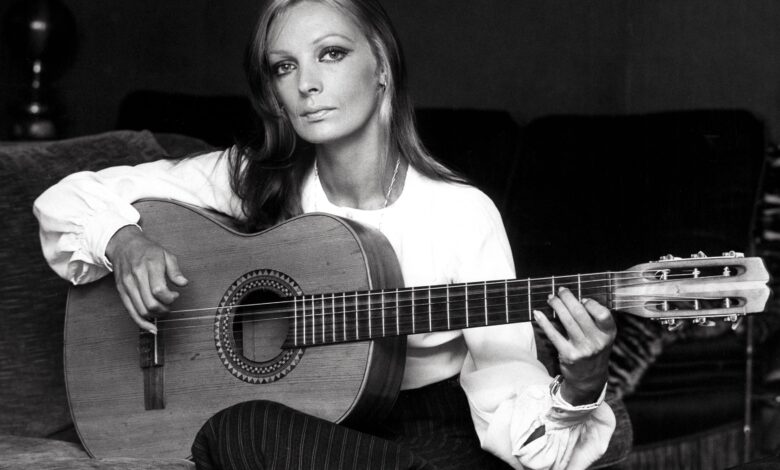The most beautiful singer in France | Culture

Songs have a long life in our memory: they stay in the hippocampus and can reappear at the most inopportune moments. I’m making a comparison between the pop history of Manchester and Liverpool, sister cities but rivals in football… and musical matters. And a melody intervenes. It’s not about the Searchers or the Happy Mondays: it’s about Manchester and Liverpoola composition by André Popp that swept the world in 1966 in the longing voice of Marie Laforêt.
Manchester and Liverpool It doesn’t work for my report. Rather, it puts you in sentimental mode: the protagonist languishes traveling both places, looking for the echoes of a past love. Yes, it’s catchy, but here the singer weighs more than the song. Marie Laforet had started in cinema and song around 1959. He broke out with In full sunwhere he coexisted with the animal radiance of Alain Delon in the role of Tom Ripley. Soon, he signed as a singer for the Festival label, at the height of the Extended Play (EP), those manageable 17-centimeter records that contained four songs, with a cardboard sleeve.
He triumphed in a big way in 1963, with Les Vendanges de l’Amour, which he even recorded in Spanish, And let’s return to love. But the Spanish record industry, with its emphasis on EPs and singles, downplayed Marie’s projection. In her albums, she expressed a love for folkwith songs by Dylan or Paul Simon, compatible with his adaptations of South American melodies and other exoticisms: the Paint it Black, by the Rolling Stones, became a kind of Cossack orgy. Curious: Manchester and Liverpool it was a success clandestine in the Soviet Union, thanks to its use as a tune in the weather information on state television.
In front of the catlike voices of so many yeyé stars, she cultivated a varied register. He could sing to the Virgin Mary and then tell stories as perverse as Franzembodying a hedonistic creature, who ignores her dying husband to dance with a suitor. And she knew something about marital conflicts: she was married five times.
My long-distance love with Marie soured in the years of the Transition, when her presence was announced at a Fuerza Nueva rally in Madrid. I didn’t dare go closer to check it out. In France, she did not seem to boast of political militancy, although in 2012 she was sentenced to a symbolic fine for discrimination, after publishing an advertisement looking for a person to clean her Parisian apartment, with the condition that she was not an “orthodox Muslim.”
And with everything, I piqued. In the final days of the Virgin Megastore on Champs-Élysées, a veritable Aladdin’s cave for discophiles, I got a seven-CD box set with what Marie recorded for Festival between 1960 and 1970, including curiosities such as versions of their hits in Spanish, Italian, German, English.
Every vice has its penance. Recently, a truly comprehensive box set – not much more expensive – has been released, comprising everything he did for different companies: almost 400 songs spread over 18 CDs. I don’t know if my passion for Marie Laforêt goes that far. Although there is his farewell to the Beatles (Il a neigé sur Yesterday) and the testimony of their direct ones. Hmmm.
Babelia
The literary news analyzed by the best critics in our weekly newsletter
RECEIVE IT




